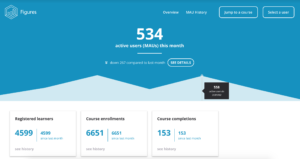As technology evolves, so does the role of developers, significantly influencing purchasing decisions. This guide explores six innovative and result-driven developer marketing ideas for 2023. From learning to tap into the psyche of your developer audience to leveraging practical content and data, the article delves into strategies to supercharge your marketing campaigns in 2023.
Key Takeaways:
- Prioritize developer education to foster product understanding and usage
- Understand your users by creating developer personas for targeted content.
- Harness the power of data to drive informed decision-making.
- Create practical content that showcases your product in real-world scenarios.
- Developer experience is invaluable in every single stage of the adoption and purchase journey.
Table of Contents
As the digital transformation proliferates every corner of the business world, a seismic shift is rippling through the market – the expansion of developer roles and their escalating influence on purchasing decisions. In fact, this is not just a wave, but a tsunami that is likely to wash over not just developer-focused firms but the broader software industry too. Given this imminent deluge, learning how to market effectively to this expanding demographic is more than a smart move – it is an existential imperative. Whether you are just dipping your toes into these waters or seeking to ride this wave to new heights, we’ve got you covered. This article breaks down six actionable and proven developer marketing ideas that will help revamp your campaigns and propel you towards your desired outcomes in 2023.
1. Education is Power
In an era where knowledge is power, educating developers is not just an option – it is a necessity. Tech giants like MongoDB, Stripe, and Twilio didn’t climb to the top of the mountain by chance – they made calculated investments in developer education. However, if you miss the mark on this, you risk watching potential customers lose interest during the product evaluation phase.
When you educate developers, you guide them on their purchasing journey – from their initial awareness about your product, through its activation, downloading the software, securing an API key, to becoming regular users. The key here is to demonstrate the value your product offers and the problems it can solve.
Implementing interactive developer documentation and offering self-paced tutorials can go a long way in educating your target audience about your product’s features, thus speeding up their decision-making process. By integrating hands-on product experiences with additional content on challenging or popular topics, you can provide a robust learning platform for developers.
2. Developers are Not Monolithic
A common pitfall in developer marketing strategies is the lack of understanding of their audience. You cannot approach developer marketing with a one-size-fits-all mentality. This demographic is diverse, ranging from nascent startups and self-taught developers to seasoned pros who have been in the game for decades. Therefore, it is crucial to craft developer personas that resonate with your specific target audience.
Survey your audience to understand their demographics, background, goals, and skill levels, and tailor your content accordingly. Buyer personas can help you visualize your audience and target the right developers with the right content. They also pave the way for personalized learning paths that cater to the needs of specific personas.
3. Data is You Ally
In an increasingly data-driven world, harnessing the power of data is key to understanding your developers and making informed decisions. Tracking and analyzing your developers’ behavior during a product course can provide you with invaluable insights into their experience. This granular data can help you fine-tune your courses, enhance your developers’ learning experience, and inform your marketing and sales strategies.
For example, real-time data platform Redis was able to leverage their users’ email addresses obtained through their free courses registration to identify clusters of users from the same company. This allowed their sales team to proactively reach out to these high purchase intent accounts.
4. Practical Content is Key
Developers appreciate practicality. Demonstrate how your product integrates into their workflow with content that is practical and reflects real-life scenarios. This approach can help to overcome any initial resistance and show developers how your product can ease their day-to-day tasks.
5. Define Clear Goals
Just as a ship cannot reach its destination without a compass, so too is developer marketing aimless without clear goals. However, measuring success in developer marketing is a departure from traditional methods. The prime goal is to link your marketing activities to developer product adoption rather than direct sales. While conventional metrics like newsletter sign-ups or eBook downloads are useful, the nuances of developer marketing require us to consider additional, developer-specific parameters.
There are five key categories you need to measure to gauge the effectiveness of your developer marketing campaign:
– Awareness: Is your product gaining visibility among your target audience?
– Adoption: How many developers are actively using your product?
– Engagement: Are developers interacting with your product regularly and meaningfully?
– Community: Are you nurturing a vibrant and active developer community?
– Satisfaction: Are your developers satisfied with your product and services?
However, the goals you emphasize should align with your business strategy. If you aim to garner more sign-ups, accumulate product feedback, or raise funds, your focus will naturally shift towards the most relevant metrics. The same goes for who you target—whether it’s startups, experienced developers, or users of a specific programming language or framework.
6. Prioritize the Developer Experience
In the realm of software development, complexity is a common nemesis that slows developers down. Hence, offering a superior developer experience is an invaluable tool in your marketing arsenal. A positive developer experience can influence whether a potential customer chooses to learn about your product, sign up for your newsletter, start a free trial, use your product regularly, and eventually make a purchase.
It’s crucial to continually refine the developer experience as it profoundly affects the perceived value of your product. By integrating your product seamlessly into developers’ workflows, you empower them to accomplish their tasks more effectively. In return, they’re more likely to advocate for your product within their peer networks, providing you with valuable organic referrals.
Conclusion: Bringing it all together with Appsembler
Navigating the sea of developer marketing can be daunting, but the right tools and strategies can make all the difference. One such tool is Appsembler, a leading provider of Learning Management Systems (LMS). Appsembler understands the unique challenges and requirements of developers, making it the ideal platform to manage and facilitate your developer education initiatives.
Appsembler allows you to customize your content to resonate with your specific developer personas, all while harnessing the power of data to track and optimize your efforts. Its immersive, hands-on approach to teaching makes it an ideal platform for creating practical content that directly addresses real-life scenarios.
With Appsembler, you can set clear and measurable goals for your developer marketing campaigns and track the key metrics that matter to you. Above all, Appsembler prioritizes the developer experience, providing a streamlined, user-friendly environment that caters to the unique needs of developers.
In an ever-evolving digital landscape, keeping abreast of the latest developer marketing trends is crucial. By leveraging the power of education, understanding your users, using data to inform decisions, creating practical content, defining clear goals, and prioritizing the developer experience, you can stay ahead of the curve and make 2023 your most successful year yet. Trust Appsembler to be your compass as you navigate the seas of developer marketing, guiding you to your desired destination.
Frequently Asked Questions
To effectively market your products to developers, prioritize developer education, understand your users, harness your data, create practical content, set clear goals, and provide an exceptional developer experience.
Developer education is crucial in software sales because it helps developers understand and experience the value of your product and the problems it solves. Educational resources like interactive documentation and self-paced courses enable developers to understand your product’s features, accelerating their purchasing decisions.
Use surveys and data collection tools to understand your developer demographics, including their goals, backgrounds, and skill levels. Once you have built your personas, you can tailor your marketing content to resonate with them and provide personalized learning paths based on these personas
Data collected during a developer’s interaction with your product can be used to understand their behavior, preferences, and difficulties. This information can guide the creation of better courses, improve the developer’s learning experience, and inform the strategies of your sales and marketing teams.
Developer experience plays a key role at every stage of the developer’s journey towards adoption and purchase. A positive developer experience can encourage developers to learn more about your product, start a free trial, regularly use your product, carry out a proof of concept, and eventually purchase a software license.
Appsembler can aid in your developer marketing efforts by providing a robust Learning Management System (LMS). Its platform can help in delivering interactive developer documentation and self-paced courses to educate your developers, speeding up their product adoption process.



